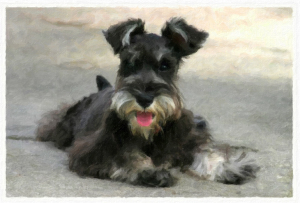 The Lowchen Dog is a petite, intelligent breed that loves to play. They’re also very eager to please their owners and respond well to positive reinforcement training methods.
The Lowchen Dog is a petite, intelligent breed that loves to play. They’re also very eager to please their owners and respond well to positive reinforcement training methods.
They’re loyal and loving, but can be prone to separation anxiety.
Be sure to give your Lowchen plenty of one-on-one time with you so he can thrive.
Characteristics
A small, lively companion breed, the Lowchen Dog is a playful, intelligent, and easy-going canine. They love being with their people and are eager to learn. The dog is alert and active, and they enjoy their role as watch dogs, although their barking may be a nuisance to neighbors. They need daily exercise and training to stay happy and well-behaved.
Their long, nonshedding coat is soft and wavy, and should be brushed regularly to prevent matting and tangles. Their coat grows quickly, so they should be clipped every few months to keep it in good condition.
The Lowchen is a robust breed with few health issues that affect them. However, they can be prone to issues like progressive retinal atrophy and patellar luxation.
Health issues
The Lowchen Dog is a small breed with a distinctive coat that can range in color from black to brown. They have a short, stocky body and a strong build.They are energetic and need regular exercise, including walks and short play sessions. They are not as prone to obesity as larger breeds, but they should still be on a balanced diet.
Hip Dysplasia: A common problem in smaller dogs, hip dysplasia means that one or both of your Lowchen’s hip joints are malformed. It can range in severity and may require surgery.
Patellar Luxation: Sometimes your Lowchen’s knee cap slips out of place (called a luxation), which can cause pain and abnormal gait. This condition often occurs in young dogs and can lead to arthritis later in life.
Distichiasis: Your Lowchen has a higher risk of developing this condition than other dogs, which involves extra hairs growing inside the eyelid and rubbing on the surface of the eye. These errant hairs can cause corneal ulcers, so any time your dog has weepy, red eyes that don’t seem to be getting better, have them checked for this disease.
Training
The Lowchen Dog is a smart, eager-to-please breed that responds well to training. They are also good with children so long as they have been properly socialized.
The name Lowchen comes from the German word for “little lion.” These dogs were originally favored as companions by the nobility. They are very devoted to their owners and love human interaction.
They do not like to be alone for extended periods of time and can develop separation anxiety if left alone. Providing regular exercise and plenty of attention will help them to feel more content and less anxious.
Their short coat needs frequent brushing and grooming to prevent matting and tangles. They are prone to certain health problems, including cataracts and progressive retinal atrophy.
The Lowchen is a healthy breed with few inherited health issues, but they should be checked for hip and elbow dysplasia and patellar luxation at an early age. Proper nutrition and regular exercise will also reduce their risk of developing diabetes.
Care
The Lowchen is a robust, intelligent dog that enjoys human companionship and makes an excellent family pet. They are also surprisingly good with children and can get along with other pets, as long as they’re properly socialized.
A moderately active breed, Lowchens need daily exercise and plenty of enrichment to keep them mentally stimulated. They thrive on a challenge, and enjoy activities such as agility and dog puzzles.
They can live indoors (as long as they have enough room for a short game of catch or other physical activity) and can be trained to do basic obedience.
Their coats are easy to care for and require very little maintenance. Brush them regularly to help spread their natural oils and prevent tangles, and trim their nails to prevent them from getting caught on things.
Start acclimating your Lowchen to grooming when they’re puppies; this will make the experience easier for both of you later on. Grooming sessions should be positive experiences, containing lots of praise and rewards.




